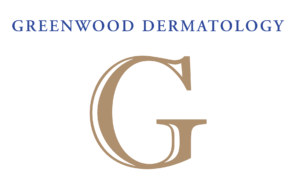Why Training Matters
At Greenwood Dermatology, you will be seen by a Board Certified Dermatologist.
| Board Certified Dermatologist (MD or DO) | Physician Assistant (PA) | Nurse Practitioner (NP) | |
|---|---|---|---|
| Minimum Years of Education After College | 4 Years of Medical School and 3 Medical Licensing Exams | 2 Years PA School and 1 General PA exam | 2 Years NP School (many are online diploma mills w/ 100% acceptance rates) and 1 General NP exam |
| Internship | 1 Year | None | None |
| Formal, Supervised Dermatology Training | 3 Years Dermatology Residency +/- additional year of fellowship training | None | None |
| Testing of Competency in Dermatology | Must pass the Dermatology Board Exam and retake it every 10 years | None | None |
| Minimum Patient Care Hours Required PRIOR to Unsupervised Practice | 12,000-16,000 Training Hours mostly in Dermatology | 2,000 Training Hours in Primary Care | 500 Training Hours in Primary Acre |
| Board Certified by the American Board of Dermatology | Yes | No | No |
Services
Botox, Fillers, Skin Care Products
Acne
Acne is a skin condition that occurs when you hair follicles become clogged with dead skin cells and oil. This can cause pimples, whiteheads, or blackheads. Acne most commonly occurs in teenagers, though it can effect people of all ages.
Treatments for acne are available, but acne can be an ongoing problem. The bumps take time to heal, and when some go away others crop right up.
Acne can cause scars to the skin as well as emotional distress. The sooner you start your treatment, the lower the risk of sever issues.
Aging and Sun Damaged Skin
Ultraviolet (UV) rays from the sun can be damaging on your skin. The more time you spend outside, the more you get exposed to these UV rays. But, we can help you erase some of the years and tears from your skin.
You do not put on skin protection every time you go outdoors or you might have used a tanning bed in the past and this adds up in your skin. The damage builds up and you start to see age spots and wrinkles that make you look older that you are. Wrinkles, Age Spots, Loose Skin as well as Spider Veins are all symptoms of aging skin.
Psoriasis
Psoriasis is a common, non curable and long-term disease. It usually goes through cycles, with flare ups for weeks to months. We have treatments available to help manage the symptoms, along with lifestyle changes and coping strategies that will help you live better with psoriasis.
Eczema
Atopic dermatitis usually starts in childhood and is most common in people with a family history of Eczema. The main symptom of Atopic Dermatitis is a rash that appears on the arms and back of the knees, but it can also appear just about anywhere.
Treatments can include lifestyle changes such as avoiding types of soaps and other irritants. But, you also have options for creams and ointments that may provide relief from the itching.
Dry Skin
You might have dry skin from your environment and not from an underlying disease. Examples may include frequently washing your hands, inadequate hydration, a dry environment, or jobs that are just rough on your skin. Other times it is best to seek medical help. If your dry skin does not improve after your best efforts, or if you notice redness, the itching interferes with your sleep, you have open sores from scratching, or you have large areas of scaling or peeling skin, it might be time to come in and have our medical staff take a look.
